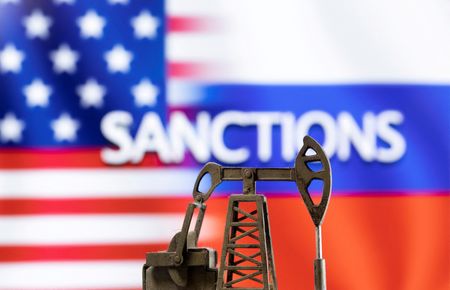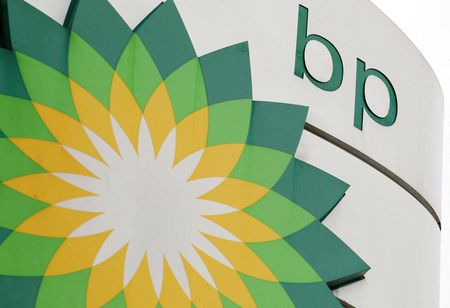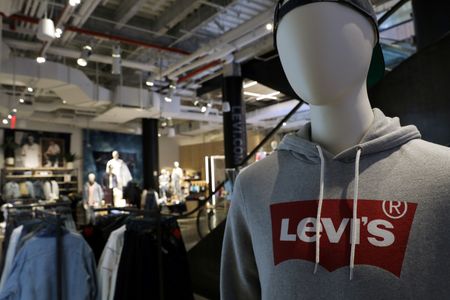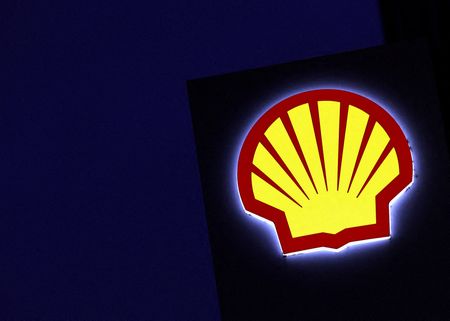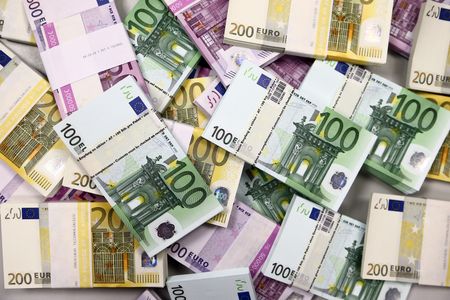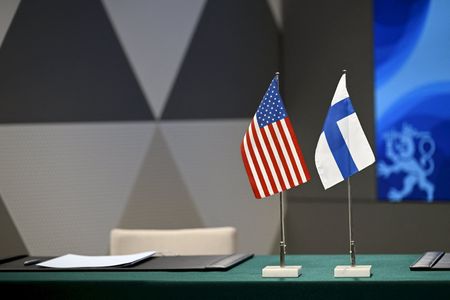By Aleksandar Vasovic and Ivana Sekularac
BELGRADE (Reuters) -The United States imposed sanctions on Serbia’s Russian-owned oil company NIS on Thursday, prompting neighbouring Croatia to cut crude supplies and raising concerns that the country’s sole refinery may halt operations within weeks.
Without deliveries, the NIS refinery, which supplies most of Serbia’s oil products, including gasoline and jet fuel, will struggle to operate beyond November 1, Serbia’s President Aleksandar Vucic said in a televised speech.
He added that storages are full and existing stocks of oil products should keep the Balkan country supplied until year-end.
“These are extremely severe consequences for our entire country. It’s not just about the functioning of one company,” said Vucic, who is already weakened by a year-long protest movement triggered by the deadly collapse of a train station roof that demonstrators blame on corruption and negligence.
NO FURTHER WAIVERS
The U.S. in January announced sanctions on NIS, Serbia’s biggest oil importer and one of Russia’s last remaining energy assets in Europe. A series of waivers delayed the measures until Thursday, when NIS said that no further postponement was forthcoming.
“The special license from the U.S. Department of the Treasury, which enables seamless operational business, has not yet been extended,” NIS said in a statement.
The operators of the JANAF pipeline that delivers crude from Croatia said in a statement that they had halted shipments to Serbia and were looking to expand into other markets.
Stjepan Adanic, the chairman of JANAF’s managing board, said on Thursday that its contract with NIS accounted for 30% of the company’s revenue. If the sanctions remain, it stands to lose 18 million euros ($21 million) by the end of the year, he said.
DISRUPTION TO OIL SUPPLY
Serbia is a candidate to join the European Union, but it also maintains close ties with Russia, which supplies most of its gas needs. Belgrade has refused to join international sanctions against Moscow for its invasion of Ukraine.
While the Serbian government has a 29.9% stake in NIS, Gazprom Neft holds 44.9% and an investment unit of Gazprom has about an 11.3% stake.
That combined Russian majority stake triggered the sanctions, which were already affecting ordinary Serbs at the pumps on Thursday.
NIS told loyalty customers they could not buy petrol from its around 350 gas stations with American Express, Mastercard or Visa, and Reuters reporters saw one man turned away by cashiers.
Jug Lopusina, 58, from Belgrade said Serbians still remember tough international sanctions in the 1990s, imposed over the country’s role in fomenting Yugoslav wars.
“We have survived one round of sanctions, I am hoping these will not be the same,” Lopusina said.
Without access to the JANAF pipeline from Croatia’s Adriatic Sea, Serbia’s options for crude imports at scale are limited, traders said.
One alternative would be to import fuels on barges along the Danube River, or by rail or truck, although the traders doubted that other regional suppliers could make up for the lost flows.
NIS’ retail director, Bojana Radojevic, said petrol stations would continue to operate and NIS said it had secured enough oil to keep running its refinery in Pancevo, near Belgrade, which has an annual capacity of 4.8 million metric tons.
“There are no restrictions when it comes to the quantities people can take, so there is no need for them to stockpile,” Radojevic said.
SANCTIONS MAY HURT SERBIAN ECONOMY
NIS supplies around 80% of Serbia’s diesel and gasoline demand, and 90% or more of jet fuel and heavy fuel oil, a trader told Reuters. The Balkan country is also almost entirely dependent on gas imports from Russia.
Milos Zdravkovic, a Belgrade-based economist, said that NIS added around 2 billion euros in 2023 to the state budget, or around 12% of total revenue.
National Carrier Air Serbia’s bottom line may suffer, said Belgrade-based consultant Zoran Kusovac, because it will not be able to store large quantities of fuel anymore, nor engage in jet fuel hedging that can translate to significant savings on fuel costs.
Air Serbia did not respond to a request for comment.
Croatia’s economy minister Ante Susnjar told state media outlet HRT TV that Croatia would be willing to buy NIS to resolve the problem. “Our hand is extended,” he said.
($1 = 0.8624 euros)
(Reporting by Aleksandar Vasovic and Ivana Sekularace in Belgrade and Robert Harvey in London; Additional reporting by Daria Sito-Sucic; Writing by Edward McAllister and Angelik Koutantou; Editing by Jamie Freed, Rashmi Aich, Emelia Sithole-Matarise and Hugh Lawson, Kirsten Donovan)

